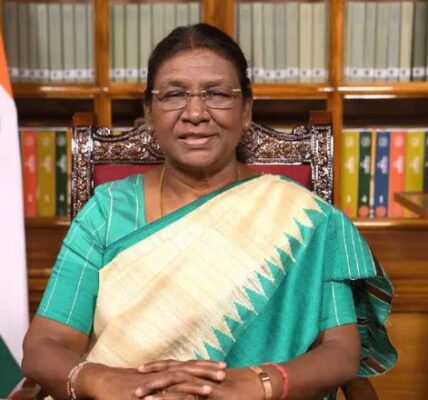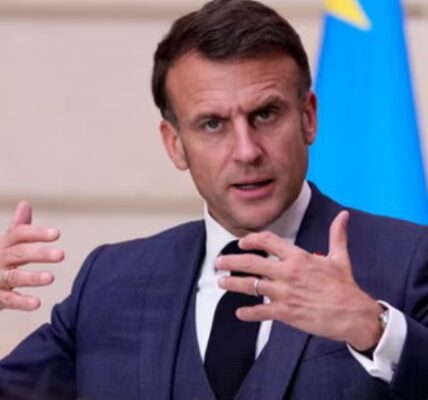Arvind Kejriwal, a prominent figure in Indian politics, has carved a distinctive path marked by activism, governance reforms, and relentless advocacy for social justice. Born on August 16, 1968, in Siwani, Haryana, Kejriwal’s journey from a civil servant to the Chief Minister of Delhi reflects his unwavering commitment to public welfare and transparency in governance.
Early Life and Education:
Kejriwal’s upbringing in a middle-class family instilled values of honesty and integrity. His father, Gobind Ram Kejriwal, an electrical engineer, and mother, Gita Devi, provided a nurturing environment for his intellectual growth. Kejriwal’s education, spanning institutions like Holy Child School in Sonipat and Campus School in Hisar, laid the foundation for his academic excellence.

Graduating with a degree in mechanical engineering from the prestigious Indian Institute of Technology (IIT) Kharagpur, Kejriwal embarked on a career with Tata Steel, where his passion for public service began to germinate.
Transition to Public Service:
Kejriwal’s decision to join the Indian Revenue Service (IRS) in 1995 marked a pivotal moment in his life. Driven by a desire to effectuate change from within the system, he immersed himself in the intricacies of governance and administration. However, his tenure in the IRS was fraught with challenges, including conflicts over his involvement in anti-corruption initiatives.
Emergence of the Aam Aadmi Party (AAP):
Arvind Kejriwal’s disillusionment with systemic corruption and bureaucratic hurdles fueled his resolve to usher in transformative reforms. In 2012, he founded the Aam Aadmi Party (AAP), a political entity rooted in the principles of transparency, accountability, and grassroots activism. The AAP’s inception heralded a new era in Indian politics, galvanizing widespread support from the common people disillusioned with traditional political establishments.
Chief Ministerial Tenure:
Assuming office as Delhi’s Chief Minister in December 2013, Kejriwal’s tenure was marked by bold initiatives aimed at combating corruption and promoting inclusive governance. Despite resigning after 49 days due to political obstacles, his decision to prioritize principles over power endeared him to the masses.
Political Philosophy:
Kejriwal’s political ideology revolves around decentralization of power and citizen-centric governance. He advocates for greater transparency in decision-making processes and robust mechanisms to hold elected representatives accountable. His emphasis on participatory democracy resonates deeply with the aspirations of millions across India.
Legacy and Impact:
Kejriwal’s legacy transcends electoral victories; it embodies the aspirations of a nation yearning for honest and responsive governance. His steadfast commitment to public welfare, exemplified by initiatives like Mohalla Clinics and transformative governance reforms, has earned him both admiration and criticism.
Challenges and Criticisms:
Kejriwal’s political journey has not been devoid of challenges and controversies. Criticisms regarding governance decisions, electoral strategies, and intra-party dynamics have often dominated public discourse. However, his resilience in the face of adversity and willingness to learn from setbacks underscore his evolution as a statesman.
Personal Life and Values:
Beyond politics, Kejriwal’s personal life reflects his commitment to family values and social causes. His marriage to Sunita, an IRS officer, symbolizes a partnership grounded in shared values of integrity and dedication. Kejriwal’s unwavering belief in the power of ordinary citizens to effectuate change underscores his humility and empathy.
Awards and Recognition:
Kejriwal’s contributions to social reform and governance have been recognized with prestigious awards such as the Ramon Magsaysay Award for Innovative Leadership. His legacy serves as a testament to the transformative potential of principled leadership and grassroots activism.
Conclusion:
Arvind Kejriwal’s journey epitomizes the triumph of idealism over cynicism, of hope over despair. As he continues to navigate the complex terrain of Indian politics, his vision of a more equitable and just society remains undiminished. Kejriwal’s legacy serves as a beacon of inspiration for future generations, reminding us that change is not merely an aspiration but a collective responsibility.
Frequently Asked Questions about Arvind Kejriwal:
1. Who is Arvind Kejriwal?
- Arvind Kejriwal is an Indian politician, activist, and former bureaucrat who currently serves as the Chief Minister of Delhi. He is also the national convener of the Aam Aadmi Party (AAP).
2. What is Arvind Kejriwal known for?
- Arvind Kejriwal is known for his advocacy for transparency in governance, grassroots activism, and efforts to combat corruption in Indian politics. He gained prominence for his role in the anti-corruption movement and for founding the AAP.
3. What are some key initiatives undertaken by Arvind Kejriwal as Chief Minister of Delhi?
- Some key initiatives undertaken by Arvind Kejriwal include the establishment of Mohalla Clinics (community health centers), reforms in the education sector, such as the transformation of government schools, and measures to provide subsidized electricity and water to Delhi residents.
4. How has Arvind Kejriwal’s leadership impacted Delhi’s governance?
- Arvind Kejriwal’s leadership has been characterized by a focus on citizen-centric governance, transparency, and accountability. His tenure has seen significant improvements in areas like healthcare, education, and infrastructure in Delhi.
5. What awards and recognition has Arvind Kejriwal received?
- Arvind Kejriwal received the Ramon Magsaysay Award for Emergent Leadership in 2006 for his involvement in the ‘Parivartan’ movement, which fought against government corruption using freedom of information laws. He has also been honored with other awards for his contributions to governance and social reform.
6. How does Arvind Kejriwal’s personal life influence his political career?
- Arvind Kejriwal’s personal life, including his upbringing in a middle-class family and his commitment to family values, shapes his political beliefs and priorities. His marriage to Sunita, an IRS officer, reflects his values of integrity and dedication to public service.
7. What are some criticisms leveled against Arvind Kejriwal?
- Critics have accused Arvind Kejriwal of making unrealistic promises, engaging in political opportunism, and facing challenges in managing intra-party dynamics within the AAP. Additionally, there have been criticisms regarding some governance decisions and electoral strategies.
8. What is Arvind Kejriwal’s vision for Indian politics and governance?
- Arvind Kejriwal envisions a political landscape characterized by transparency, accountability, and citizen participation. He advocates for decentralized decision-making, empowering local communities, and reducing bureaucratic hurdles in governance processes.





